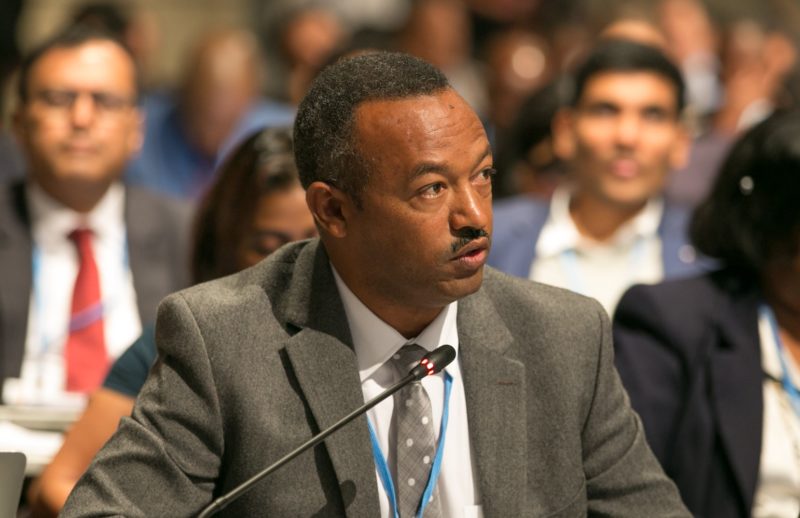Against the backdrop of the Intergovernmental Panel on Climate Change (IPCC) Special Report on the impacts of global warming of 1.5°C released on Monday, October 8, 2018, countries have been told to immediately intensify climate action and be more ambitious for the future.

Chair of the Least Developed Countries Group, Gebru Jember Endalew, made the submission in a response to the report and the accompanying summary for policy makers.
Endalew said: “The report provides concrete scientific evidence that confirms the importance of limiting global warming to 1.5°C as opposed to 2°C. Communities across the world are already experiencing the devastating impacts of 1°C global warming. Each fraction of a degree that global temperatures rise is extremely dangerous.
“Limiting global temperature increases to 1.5°C means significantly decreased levels of food insecurity, water shortages, destruction of infrastructure, and displacement from sea level rise and other impacts. To the lives and livelihoods of billions, that half a degree is everything.
“The science makes clear that there is an urgent need to accelerate the global response to climate change to avoid exceeding the 1.5°C limit. Governments must increase climate action now and submit more ambitious plans for the future. This includes increasing the level of support to developing countries to enable them to develop and lift their people out of poverty without going down a traditional, unsustainable development pathway.”
On the issue of loss and damage, he commented: “This IPCC report confirms that loss and damage resulting from climate change will only worsen with further warming with much greater losses at 2°C than at 1.5°C. It is particularly vulnerable countries like the least developed countries that are worst affected by the devastating impacts of climate change and bear the greatest cost from the damage it causes, despite contributing the least to the problem. This injustice must be addressed by the international community through the provision of support for dealing with loss and damage.
“The most important message of this IPCC report is that achieving the 1.5°C is necessary, achievable, and urgent. A safer more prosperous future is possible with immediate action to implement transformative change across societies. There is a need to take advantage of the increasing availability of affordable, renewable and efficient energy solutions, rapidly reduce the use of fossil fuels, with coal phased out by mid-century, preserve and restore forests and soils, promote sustainable agriculture and implement other real climate solutions that together can bring about a zero-carbon economy.”
On the implementation guidelines for the Paris Agreement that are due at COP24 in December 2018, he noted: “The IPCC report has made even clearer the need for the Paris Rulebook to properly reflect the breadth of action required by all countries to achieve the Agreement’s 1.5°C goal. Countries must deliver a robust Rulebook that will ensure adequate action is taken to cut emissions, adapt to climate change and address loss and damage, and that support is provided to enable poorer countries to do the same.”
